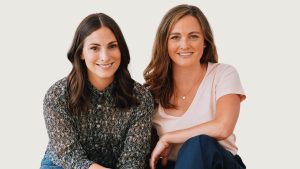Sheldon James wants to create a brighter future—one characterized by diverse talent and equal opportunity.
An entrepreneur and former military vet, James started Bay Mills Investment Group alongside his brothers (actors Shamier Anderson and Stephan James) as a way to support others who understood his experience as a person of colour navigating the business landscape.
While recent social justice movements have ignited discussions around race and equity in and out of the boardroom, the numbers show that there is still much work to be done. Venture capitalists often support companies that are within their existing networks or reflect their own experiences—which is to say, white and male. Of the 3,304 companies invested in during 2018-2019 by the top 100 US VC firms (based on deal activity,) 89.3% were male and 71.6% were white. Furthermore, in the US, only three percent of the $147.6 billion raised in venture capital during 2020 went to Black-founded companies. In Canada, it is estimated that the numbers are on par (or worse) than our American counterparts.
With the creation of the Bay Mills Diversity Fund, James and his team are looking to move the dial by providing direct support to BIPOC founders with investments ranging from $500,000 to $5 million out of a total (planned) fund of $100 million. Here, he discusses his own experiences as an entrepreneur, how the fund will operate, and the business case for diversity.
What inspired you and your team to create the Bay Mills Diversity Fund?
We chose the name Bay Mills Diversity Fund because my brothers and I were raised in a single-parent household out of a project neighbourhood in Scarborough named Bay Mills. Growing up there, we realized that there were a fair amount of disparities, such as poverty and not understanding what it meant to be wealthy or to circumvent the challenges of being poor.
This was born out of the personal challenges in my experience as an entrepreneur and the challenges that my brothers faced on the not-for-profit side, as well as their personal careers. We’re building and designing a solution for that problem: the ability to access resources, financing, and widespread knowledge and literacy.
Outside of accessing funds, what are some of the hurdles that you experienced and are looking to assist other entrepreneurs with moving forward?
I’ll call out the elephant of the room: race has been the number one issue. And I say that with a lot of confidence because I’ve experienced it firsthand.
Oftentimes when I would apply for jobs as a younger man, I’d submit a resume and hope to get a phone call. I’d do well on the phone interview and get called to come in for an interview. It’s sad to see the reaction on individuals’ faces when they realize that I may not be the person that they thought they were speaking to on the phone, or I may not look as intelligent as I sound on the phone, or I may look a bit younger than they thought. My race was really and truly one of the biggest challenges that I faced.
As an entrepreneur in cannabis, and living in a place like northern, rural BC, it was difficult to prove myself and make a credit union or a bank understand that my business was worthwhile. And to boot, my business was in cannabis so it was compounded by that. It became one of those things that was an everyday challenge for me that I wanted to circumvent, but I never knew how to. We realized that to be able to do that, economic empowerment was the most important thing.
If we’re not able to empower individuals economically, how are we supposed to expect that those individuals are going to be able to make opportunities for themselves and create opportunities for individuals within the community? Aside from that, and the combination of financing, the greatest issues would then be my age. It’s the misconception that as a young man from a marginalized neighbourhood, I should only choose one thing to do. And that one thing should be working nine to five for someone else. [People think] I shouldn’t be as bold or brazen to think that something like this is doable.
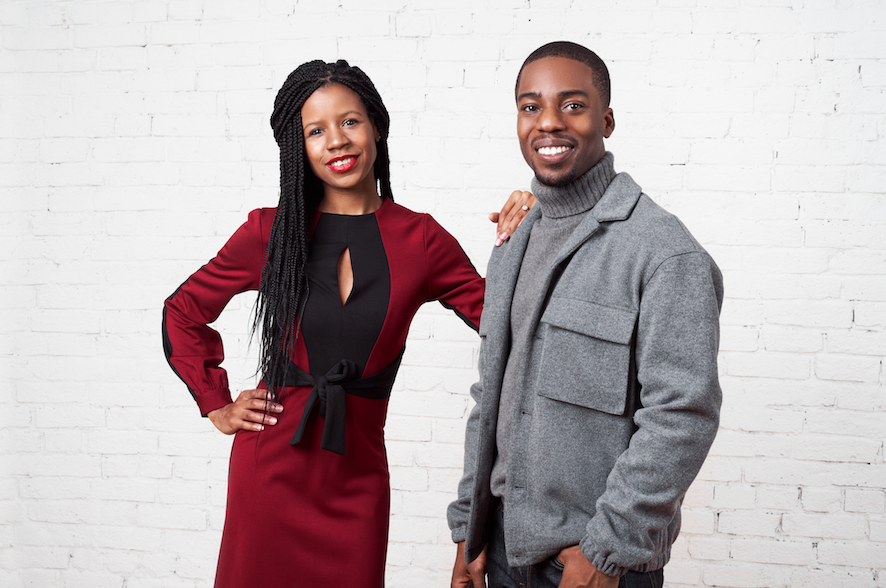

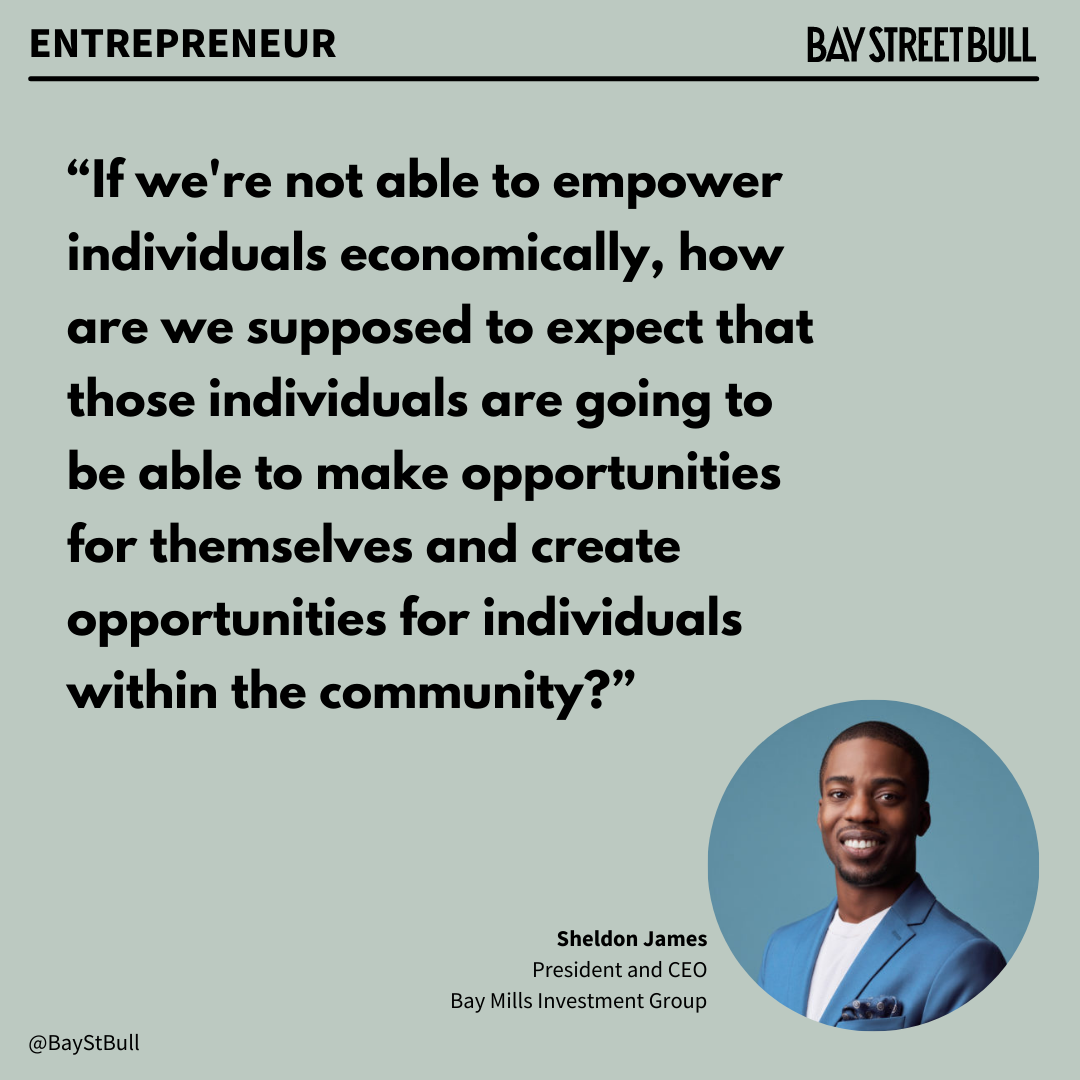

With the fund, how will you evaluate the startups and entrepreneurs you’re working with?
The very beginning of the process starts with meeting and understanding who the individual is. Not as a founder, entrepreneur, technologist, or engineer, but as a person to truly understand who they are and where they come from. With our fund focusing on BIPOC entrepreneurs, we want to know that the individual has come from a situation that was like ours. We’re very grassroots and want to be in touch with the community about who we are and how we intend to be in the future. It is truly important to us.
Then, it goes into the traditional silos of venture capital due diligence. We look into the finances and whether or not these individuals have a track record. We back companies that are in the area of Series A, so they have either proven models or a proven business. We’ve built out controls within our system, like our accelerator program, that are going to enable us to take that talent in as early as it may be, refine it, and help them take their business to where it needs to be. We’re trying to cover every vertical that’s aligned out there in venture and wherever the burgeoning leaders are, we want to be.
What are the sectors you’re focusing on and why?
We have five different sectors that we focus on including real estate management development and education technology. We also have a vertical in support of medical and biotechnology. We’re very interested in both software- and hardware-based technologies in any application. We also see opportunities in hospitality, entertainment, and service. Our last vertical is cannabis production and processing. We picked these verticals to ensure success because we know that we’re very talented in them. We’ve got a lot of real-world industry experience scaling businesses in these areas.
What opportunities are there to introduce people to other members of the business community to help open doors?
In thinking about just how impactful a network can be, my brothers and I have a saying: “Anyone in the world is an email away.” It’s the power of the network and that’s one of the things we lean into. The power of the network is one of our value propositions here at the Bay Mills Investment Group (BMIG), we’re able to open doors to the network both ways. We’re able to open the door for potential investors—individuals that come on with us as limited partners—and we’re able to open the doors for investee companies.
Often, throughout our lives, we haven’t been given that chance. No one has been welcoming and willing enough to open their Rolodex to us. So doing that for the greater community is at the helm of what we’re doing.
RELATED: How Wess Hall Plans to Rebuild the Boardroom with BlackNorth
How do you think the notion of innovation has evolved as a result of the challenges that 2020 has presented?
We’re in a new age where COVID-19 has brought upon a different demand. Not only is there one for new types of innovative services and products but there’s also a demand for a socially conscious entrepreneur, founder, and business.
As we move into the new age of venture capital, a new age of business financing, and business in general, we’re also coming into a new age of investors and consumers. These individuals are much more aware of what’s going on around them and what’s going on in the world. They want to align themselves with products, regardless of cost, that follow their lifestyle. And we identify with the conscious economics portion of things.
A lot of entrepreneurs are focusing on social impact and have a point of view and mission. There’s an urgency and need for that now. Customers demand that out of the companies that they want to be loyal to and companies have to meet that request.
Exactly. And in addition to that, we’re realizing that not only are the customers very focused on the businesses, but they’re now becoming more focused on how it is operating and where their funding may come from. We’re all starting to become a lot more aware of what investments are and how to invest with things like Wealthsimple and different platforms that enable youth to take wealth management into their own hands. I think it’s pertinent that we’re able to be transparent in that way.
We’re people that come from the community. I grew up in the hood, my brothers grew up in the hood. We have been very true to where we come from, and we realized that that’s been lost, especially with many people who have come before us.
There are certainly many people of colour that have come before us that are great at what they do. But there are also many that aren’t helping advance the community because they realized this is how they can do it for themselves and they’re holding onto that. It becomes a little bit proprietary for them. We’re not here to do that.
On the Bay Mills Investment Group site, it says that companies must present an “innovative business model solving an important problem.” How do you define an “important problem?”
The first prong would be what’s most obvious. As you said, we’re looking for innovative solutions to problems that are important to the entrepreneur. You can tell the difference between somebody who’s emotionally connected to their business versus a serial entrepreneur that does a few different things to see which one sticks. In finding an innovative business model to solve an important problem, we want to leave that in the hands of the entrepreneur. We want to understand what they’re doing and how their brain works to see whether we’re aligned.
The second prong would be what’s less obvious. We’re looking at pairing with these companies who have identified problems that aren’t necessarily ones we know we have yet.
If we’re talking about the pandemic that’s going on right now, we must start to think ahead to avoid these things from happening. We’ve had so many different breakdowns in so many different industries because of the coronavirus and now it becomes important that we’re on our toes and thinking 50 steps ahead. We need to be aligned with what’s going on in the future to understand how businesses are going to scale.
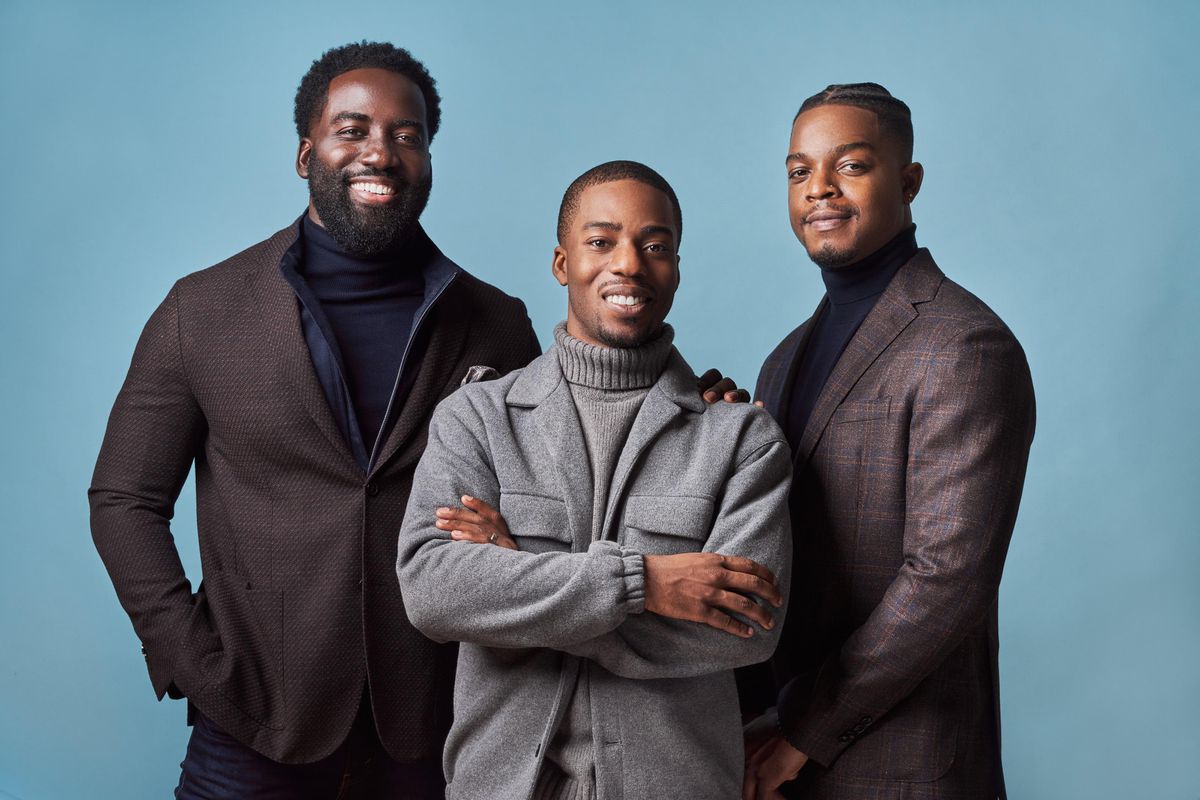

How are you working with your brothers Shamier [Anderson] and Stephan [James] on this? What are you respectively overseeing and how would you say the combined skill sets and experiences between you all uniquely help you tackle your mission in different ways?
My brothers have been in entertainment for around 15 years. And in that time, they’ve gathered quite a few different contacts who are able and in a position, whether it be financial or with a platform, to have the reach that we need to further our message. We have a neat approach to doing things because we’re in the age of celebrity VC. Imagine you had a basketball player come in and invest in your company. All of a sudden you now have the eyes of a bunch of basketball players and fans with a higher net worth who might be looking for an opportunity to invest. We are using my brothers to that degree and all that they can bring to the table with their network to strengthen the value proposition.
Myself, as well as my partner Melissa Allen, are the boots on the ground. I help on a day-to-day basis with our founders. I’m conversing with them and seeing where it is that we can add the most value. I apply my life and leadership experience, having served in the Canadian Armed Forces in addition to my technical knowledge and experience from studying accounting and finance at school.
I’ve got deep roots within the finance community. My brothers have deep roots in the entertainment space. So, my brothers are the public faces that bring us that network, and then I’m able to put it to work and advise how to use it.
How are you defining progress for your organization? What are some of the milestones that you’ve surpassed so far?
The main thing for many individuals would be the raising of the fund, and that has been going amazingly. We’re very happy to just about be ready to close the first $25 million. For my brothers and myself, it’s been one of those experiences where we’re happy that we’re able to be a part of it but at the end of the day, there’s still a lot of important work to be done.
We’re looking at our progress in terms of how many individuals we are able to affect the lives of on a yearly basis. The way that we mapped out our metrics is by how many conversations we can have. If we can have a thousand conversations with a thousand burgeoning founders from the BIPOC community, then we have a higher chance of being able to get 30 to 40 percent of them to bet on.
There are different markers along the way that tell us that we’re getting closer to that: getting feedback from the entrepreneurs and the greater venture capital community or the finance community, having those meetings, and hearing what limitations partners have or what potential investors have to say about our model and how we can refine things. There’s a variety of ways that we measure our performance but all in all, it’s about how many lives we can affect and how we can be involved in the process of helping not only a business but an entrepreneur.
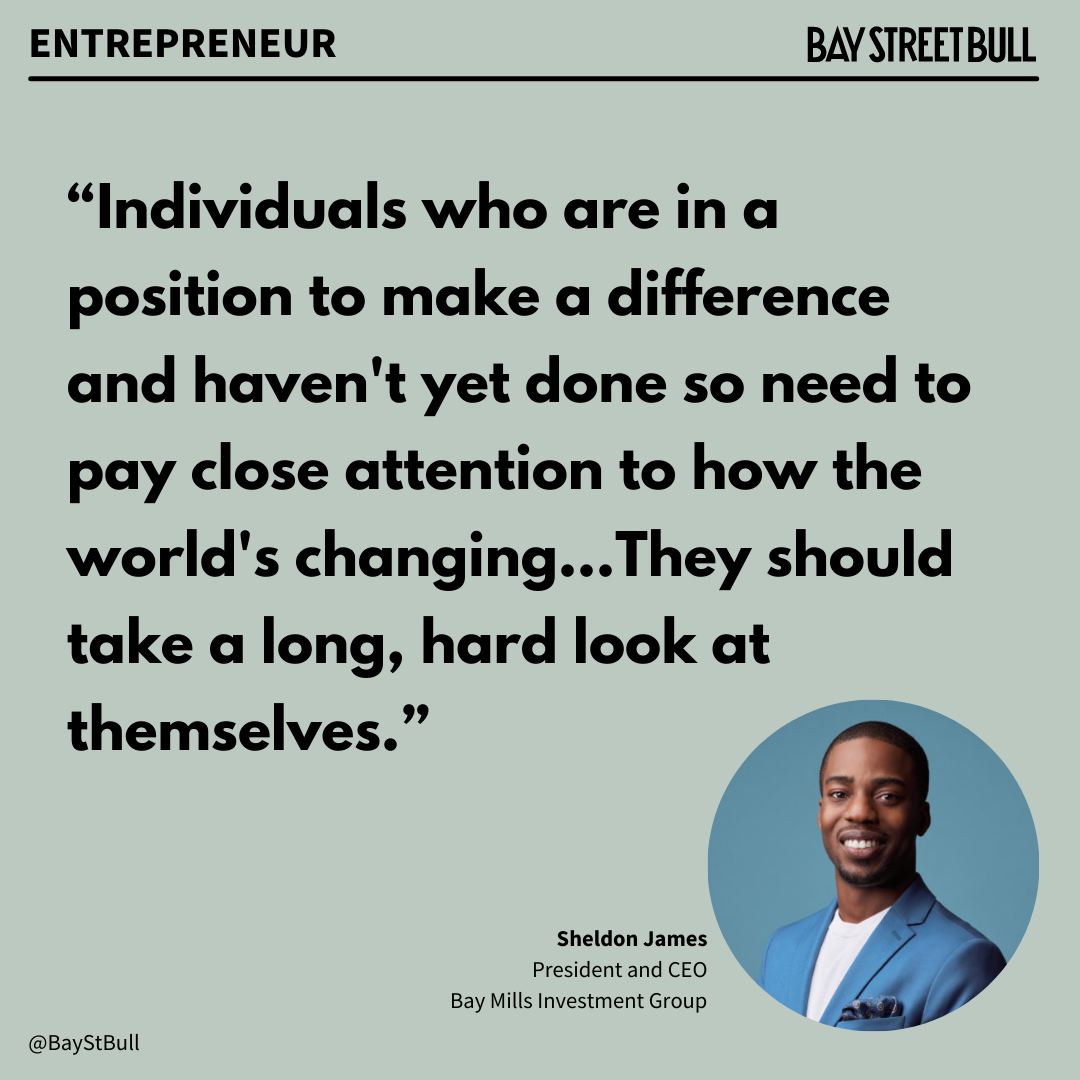

There are a few different controls but many of them are based on understanding where the entrepreneurs are at and how that they got there. Being in constant communication with them, almost to a fault, where they’re able to call us as much as they need to in order to succeed. How can we build out this ecosystem of support to be better and have more change than we did yesterday? It’s a bunch of different things, but holding ourselves accountable to one another is the strongest way that we’ve found to be able to do that.
Why is diversity important in the venture capital space outside of just being the right thing to do?
Number one, it’s the right thing to do. Number two, it’s about being able to make this marketplace of both venture capitalists and entrepreneurs a bit more equitable. As a child, I never had an example of a Black entrepreneur, or even of colour, in my life who I looked up to where I could say, “I could be doing this too.” So it has been a big part of what we do here: to be that example.
I think that diversity is so important because there is a business case. We’re [currently] excluding a substantive population that can range between seven and 15 percent, depending on what metropolitan area of the country we’re looking at. How can we understand what’s out there if we’re excluding seven to 15 percent?
If you have 30 individuals in a class, asking 15 of them a question would be counterintuitive. You’d want to ask all 30 to see what answers you might find. That’s why we’re doing it. We realized that we need to be the first people to do it for there to be that long-lasting change that will affect generational wealth moving forward.
RELATED: How Serena Williams is Filling the Gap for Black Women Entrepreneurs
What do you think all leaders should be asking themselves about how they’re leading their companies?
How can they affect change? How are their current engineering controls not serving them in the most appropriate way? How can they make amendments to these controls to ensure the best level of success across the entire playing field, not just a quarter of it or half of it? Those are questions I expect to see C-suites to be making, and leadership and businesses to be making.
I think these major corporations are going to be asking themselves, “how do we go outside of the box to best serve everyone?” Because right now it’s not working. Whether we’re sick of COVID-19 or we’re sick of systemic racism, the problem is that society is too archaic in the way we think about how to do things. I believe that those are important questions we’ve got to be asking them.
As an entrepreneur, what is the lesson that has taken you the longest to learn?
It’s been an evolution for me. There are two principal things, but the number one thing that I’ve had to learn is that if you want to innovate, you have to be willing to be misunderstood. Individuals won’t always understand your idea or why you’re doing it.
I think that being expressive in this way has been a big challenge for me to come to terms with. The world as we see it has been oppressing me for several years. I tried very hard to excel whether it was in the military or as an entrepreneur. I tried very hard and I was met with very minimal support at times but it was all a big learning curve for me.
I think another part of learning was accepting that failure was integral to the success of any entrepreneur. I don’t know any entrepreneur that hasn’t had a failure or what they considered to be a failure. I think with that failure, entrepreneurs can truly understand what adversity means. And that’s the reason why I agree in saying that entrepreneurs are some of the best-bred leaders. I also want to say that people of color, and in particular, Black people, have been very resilient. We consistently face systemic racism and we’re constantly under the watchful eye of society in what it is we do and how we carry ourselves. And I think that that has shaped us into individuals who realize that there’s nothing that is going to stop us from being successful. We’re still able to look past that negativity and build something positive out of it.
Do you have any concluding thoughts?
Individuals who are in the finance world or are in a position to be able to make a difference and haven’t yet done so, they need to pay close attention to how the world’s changing. If they sit there in the position that they’re in where they’re able to make a change and they’re not doing it, they should take a long, hard look at themselves.
As my brothers and I have come through Bay Street, and have seen a variety of different individuals both within the Black community and outside of it, we’ve seen that there’s this stark misrepresentation of who Black people are in and on Bay Street. That’s one of the things others are here to dispel.
We believe in the people that we’re able to help and the change that we can truly affect. If we’re using our platform for good, then we believe that everybody else should be able to do the same thing, actioning all their dollars and making them make sense for the entirety of the community, not just for one or two people now.
We’re not going to stay here and watch bad things happen to great people. We’re not going to sit here and watch opportunities get plucked out of the hands of people who deserve them. We’re here to restore that natural societal order to Bay Street, and I’m happy to be doing it.
[yikes-mailchimp form=”1″ title=”1″ submit=”SUBSCRIBE”]



